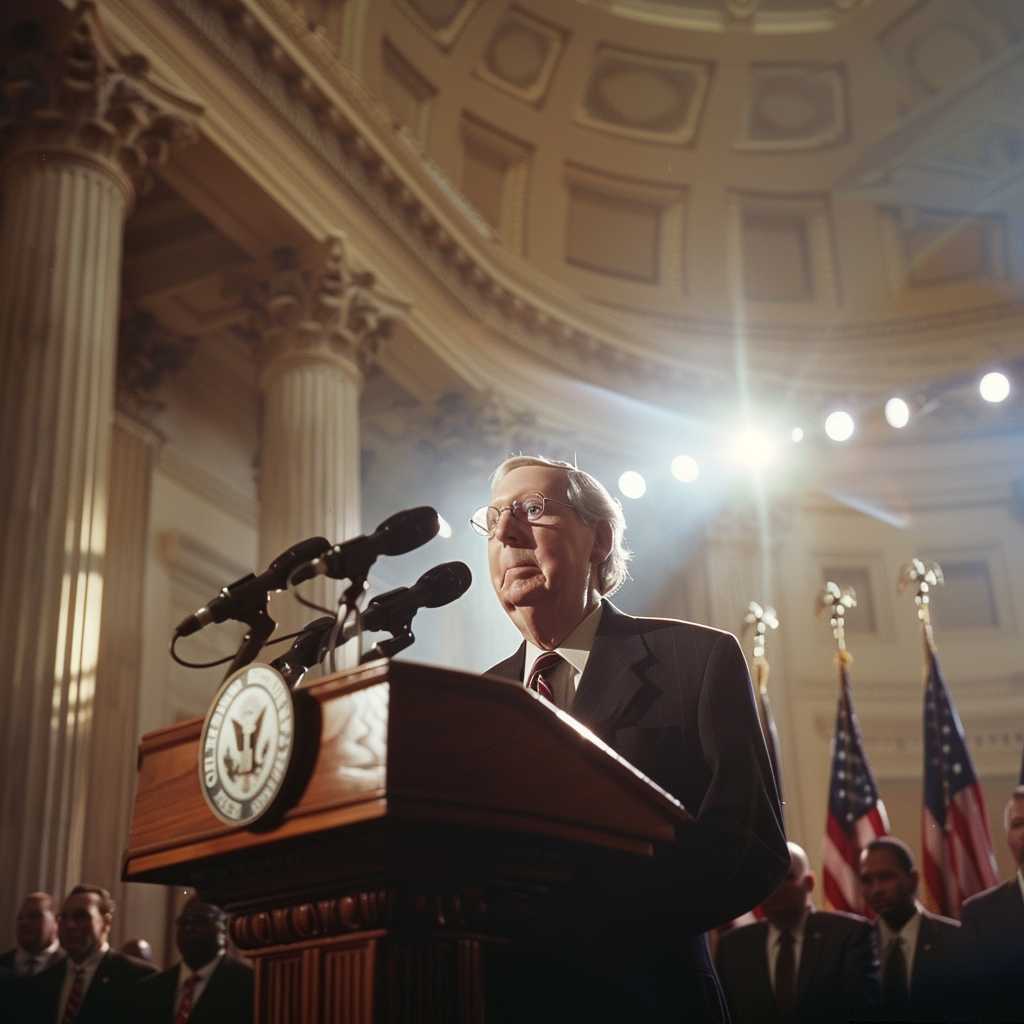Mitch McConnell: A Profound Influence on American Politics
Mitch McConnell, a prominent figure in American politics, has served as one of the longest-serving leaders in the US Senate and as a key player in shaping the legislative agenda for numerous administrations. His tenure as Senate Majority Leader and now as Minority Leader embodies his significant influence on judicial appointments, Senate norms, and conservative policy-making. This article explores McConnell’s political career, his strategies, and impact on the shape of American government and its institutions.
Early Life and Political Ascent
Before becoming a household name in U.S. politics, Addison Mitchell McConnell Jr. established the foundation for a long-lasting political career. Born on February 20, 1942, in Sheffield, Alabama, early adversity marked McConnell’s life when he was stricken with polio at age two. However, McConnell overcame this challenge, and his family’s move to Louisville, Kentucky, when he was a teenager would eventually root him in the state he has represented for decades.
After graduating from the University of Louisville with a degree in political science and later from the University of Kentucky College of Law, McConnell launched into public service. From internships with senators and a brief stint working for the Department of Justice under President Gerald Ford to his own election as Jefferson County Judge/Executive in 1977, these steps marked a steady ascent within Republican ranks.
Senate Career and Leadership Roles
McConnell’s tenure in the U.S. Senate began with his election in 1984. Throughout his several terms, McConnell has been known for his reserved demeanor but strategical prowess on Capitol Hill. Notably adept at using Senate procedure to block or advance legislation based on party lines or ideological considerations, his career boasts numerous strategic successes that have influenced the federal judiciary, tax policy, and political discourse.
Over time, he climbed the ranks within the Senate Republican leadership. The zenith of this progression came with his election as Minority Whip in 2005 and eventually as Majority Leader in 2015 after Republicans took control of the Senate during the Obama administration.
Legislative Strategy and Partisanship
McConnell’s indelible mark on the Senate is often examined through the lens of partisanship and legislative strategy. Known for a keen ability to unite Republican senators around key issues and votes—even among members with stark ideological differences—his leadership has been instrumental in navigating complex legislative waters.
Critics argue McConnell’s tenure has exacerbated partisan divisions by implementing procedural maneuvers such as limiting debate time on critical legislative and judicial appointments—a tactic that enables faster approval with fewer hurdles. His strategic use of the filibuster and his decision to block President Obama’s Supreme Court nominee Merrick Garland from receiving a confirmation hearing stand out as controversial moves that shifted accepted norms within how the Senate operates. Conversely, advocates celebrate these actions as effective use of majority power to secure policy objectives.
Judicial Appointments and Legacy
One of McConnell’s most enduring legacies lies in the transformation of the federal judiciary under his leadership. During President Donald Trump’s term, McConnell oversaw the confirmation of more than 200 federal judges, including three Supreme Court Justices—Neil Gorsuch, Brett Kavanaugh, and Amy Coney Barrett—which starkly shifted the court’s ideological balance to the right.
McConnell also focused heavily on younger judges with conservative backgrounds to ensure a long-term impact on American jurisprudence. These judgeships have cascading effects on decisions regarding voter rights, immigration policies, gun laws, abortion rights, and many others that impact American society significantly.
Recent Political Influence
Even after Democrats gained control over both chambers of Congress and the Presidency in 2021, McConnell’s role as Minority Leader continues to be potent. He remains a formidable negotiator with a reputation for being one step ahead regarding strategy on legislative matters. His abilities may hinge upon Republicans regaining control of the upper chamber or rest on how he leverages divided government scenarios—an area where he has historically excelled.
As political dynamics evolve and new challenges arise within American governance during a period characterized by intense partisanship, McConnell’s strategic mind continues to influence both policy directions and Senate norms for better or worse.
